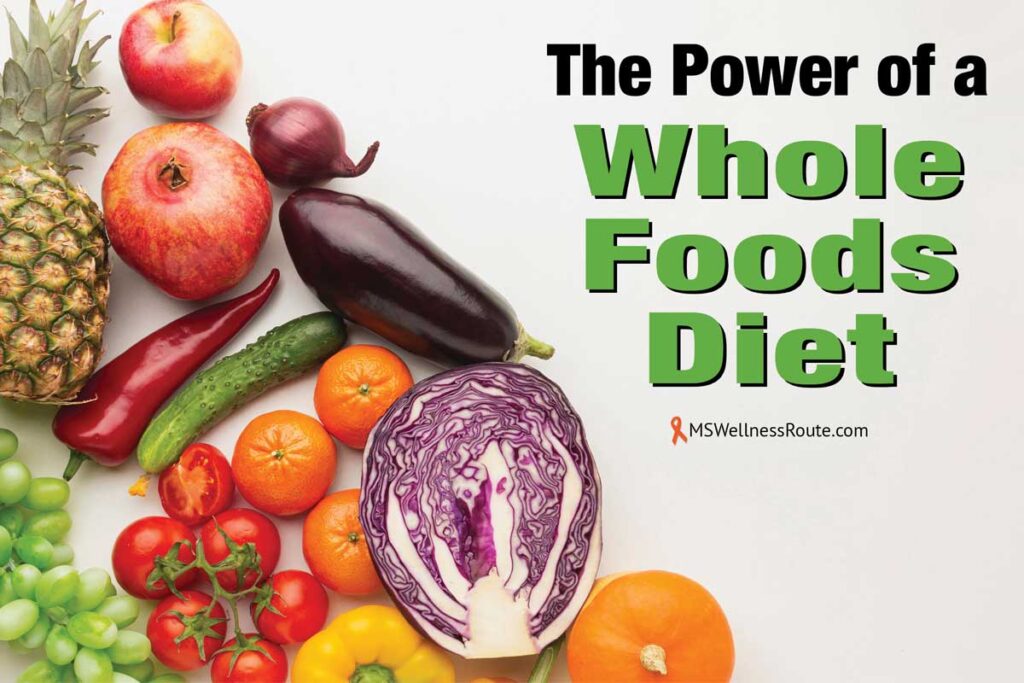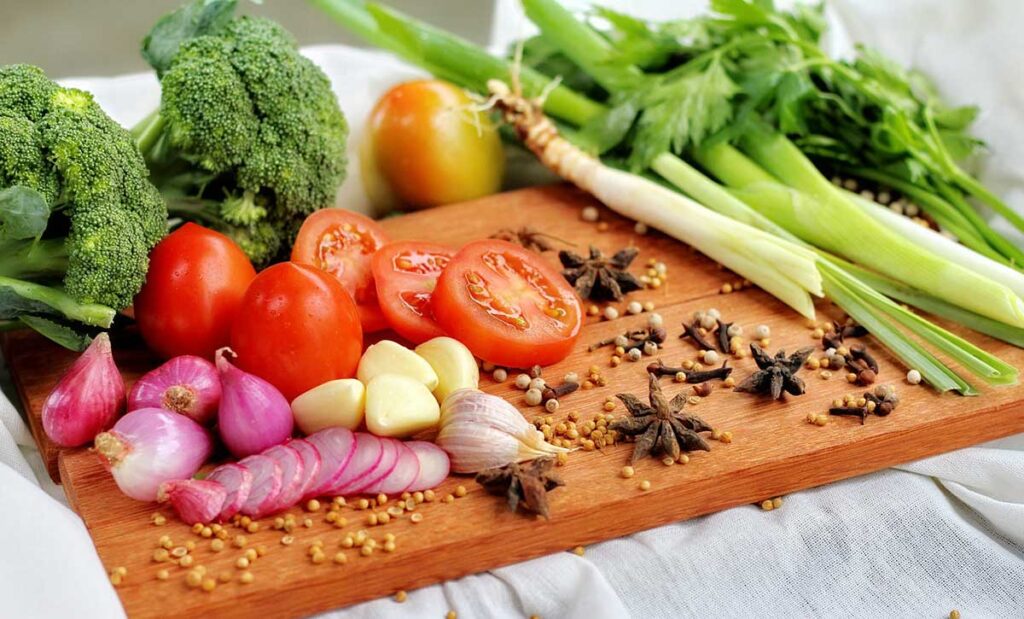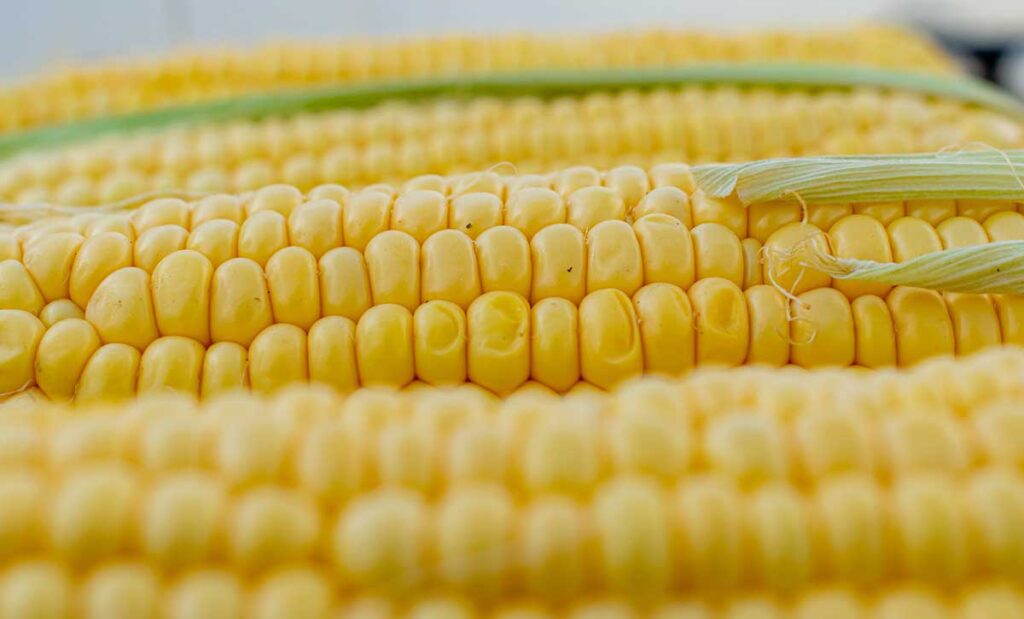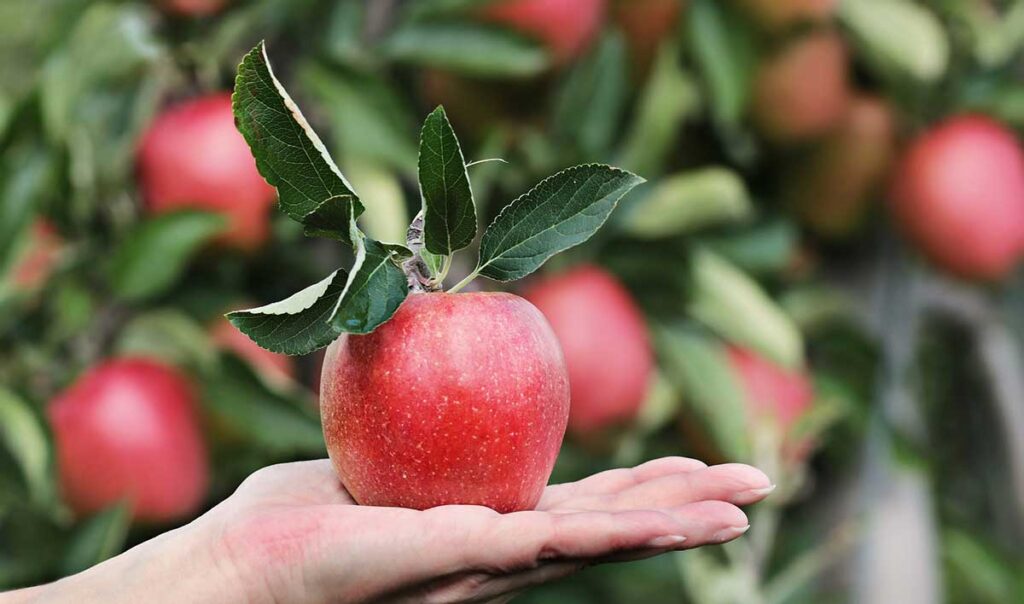Last Updated on November 13, 2023 by Cathy

There are many popular diets for multiple sclerosis (MS). Not one is perfect for everyone. However, each diet is helpful for managing MS symptoms and supporting overall health. Whichever one you choose, eat a whole foods diet with mostly fruits and vegetables.
Popular MS diets include:
- Best Bet Diet (BBD)
- Intermittent fasting diet
- Keto diet
- Low saturated fat diet
- McDougall diet
- Mediterranean diet
- Overcoming MS diet
- Paleo diet
- Swank diet
- Wahls Protocol (a paleo-based diet)
What is a whole foods diet?

A whole foods diet isn’t necessarily a “diet.” Instead, it emphasizes consuming real food. Such as fruits, vegetables, whole grains, legumes, nuts, and seeds. While minimizing or completely eliminating highly processed products. Some people may also consume small amounts of dairy products or eggs. But these are generally considered optional.
A whole foods diet is often promoted for its potential health benefits. This is due to its high fiber, vitamins, and minerals, plus it’s low in saturated fat and cholesterol. Frozen fruit and vegetables are also nutritious and allowed.
Benefits of a Whole Foods Diet
There are many health benefits associated with following a whole foods diet. Here are some of the potential advantages:
- Lower risk of chronic diseases. A whole foods diet is rich in vitamins, minerals, fiber, and phytochemicals. This helps reduce the risk of chronic diseases, including heart disease, cancer, and MS.
- Improved digestion. Fruits and vegetables are high in fiber. This helps promote digestive health and prevent constipation.
- Lower cholesterol levels. A whole foods diet is generally low in saturated fat and cholesterol. This helps lower blood cholesterol levels and reduce the risk of heart disease.
- Reduced inflammation. Fruits, vegetables, and nuts contain anti-inflammatory compounds. This helps reduce inflammation in the body, which is the cause of MS.
- Potential weight loss. Plant-based diets tend to be lower in calories and higher in fiber. A high-fiber diet will help if you suffer from constipation.
- Environmental sustainability. Plant-based diets have a lower environmental impact than diets. This is because producing plant-based foods requires less water, energy, and land.
Benefits of a Whole Foods Diet for MS

Eating a whole-food diet is also beneficial for people with MS. Research has shown that eating more fruits and vegetables lowers inflammation. This is a key factor in the onset and progression of MS. It also improves cognitive function and reduces fatigue, and other symptoms.
Although a whole foods diet allows dairy, eggs, and grains. it’s best to avoid these. Studies found women with MS who drank more milk had more flares. Other studies found countries that consume more dairy have higher rates of MS.
In 2022 a study stated they found a protein in milk is like a protein in myelin. They believe in MS patients, their body gets confused. Instead of attacking the milk protein, their body attacks the myelin protein.
Dr. Terry Wahls, the author of The Wahls Protocol, found people with MS are more sensitive to eggs. Eggs are also one of the top food sensitivities. It’s best to avoid eggs until you have healed.
Plant-based foods to avoid for MS:
- Dairy
- Corn (it’s a grain)
- Eggs
- Gluten (you can eat gluten-free grains like quinoa after you’ve healed)
- Grains
- Legumes (beans, peanuts, soy)
However, there is no one-size-fits-all approach to managing MS. Different people have different dietary needs and preferences.
Foods To Avoid

On a whole foods diet, the focus is on eating real food that mostly comes from plants. Not highly processed foods and foods that lead to chronic diseases. Here are some foods to avoid:
- Corn. Corn is a high-glycemic food that can cause inflammation and digestive issues. Plus, it’s mostly a GMO product.
- Dairy products. This includes milk, cheese, yogurt, and butter.
- Eggs. Avoid all types of eggs, including egg whites and yolks.
- Gluten. Gluten can cause the release of an inflammatory protein called zonulin.
- Grains. To heal faster avoid all grains including gluten-free grains. You can add these back later.
- Highly processed foods. This includes chips, cookies, fast food restaurants, soda, and bakery products.
- Meat. Avoid conventionally raised meat, including beef, poultry, and farm-raised fish. Red is known to increase inflammation.
- Pork. Pork is high in fat. Dr. Roy Swank recommends people with MS lower their saturate-fat intake. Ann Boroch, the author of Healing Multiple Sclerosis, says to avoid pork due to parasites and toxins.
- Refined sugar. Avoid all refined sugars such as table sugar and high fructose corn syrup.
- Sodas and sugary drinks. Avoid drinks that are high in sugar, such as soda and other sugary beverages.
- Soy. It’s best to avoid soy products because they can interfere with hormone balance. They can also contribute to thyroid issues. Plus, soy is mostly a GMO product.
Foods You Can Eat

On a whole foods diet, the focus is on eating real food. That means eating food that comes from plants. And, minimizing or completely eliminating animal products.
Here are some examples of what you can eat:
- Fruits. All fruits.
- Vegetables. All vegetables (corn is not a vegetable, it’s a grain).
- Nuts and seeds: Almonds, cashews, chia seeds, flaxseeds, etc.
- Healthy fats: Avocado, olive oil, coconut oil, etc.
- Herbs and spices: Garlic, ginger, turmeric, cumin, basil, oregano, etc.
- Animal products: Grass-fed meats, pasture-raised poultry, and wild-caught fish (don’t eat farm-raised fish).
Fried french fries are not a food you should be eating. Although it is technically made from a plant, it is highly processed. Instead, focus on whole, minimally processed foods. Also, make sure you are getting all the nutrients you need, including calcium, iron, protein, and vitamin B12.
“If it came from a plant, eat it; if it was made in a plant, don’t.” – Michael Pollan
The Power of a Whole Foods Diet

A whole foods diet is a diet where you eat food as close to its natural state as possible. Some healthy foods, such as raw honey, are minimally processed and okay to consume. If you are not consuming any animal products, you may need to supplement with vitamin B12. I take Liquid B12 by Vimergy.
Eating a whole-food diet will help prevent chronic diseases.

The Ultimate Guide to Surviving & Thriving with MS
Unlock the power of a healthy lifestyle with this exclusive ebook! Discover practical strategies and expert advice on managing MS naturally through nutritious eating and mindful living. This comprehensive guide is packed with wellness tips, and lifestyle recommendations tailored specifically for you. Take control of your health and embark on a transformative journey toward a balanced and vibrant life. Get your hands on this invaluable resource and start thriving today!






Thank you so much for all the information! My Doctor is trying to rule out MS again… I have all the ms symptoms for years. I now have night shades allergy. Going to allergy specialist next week. Brain scan coming up. I avoid all night shades but recently used dough from store that had hops and beer in it which gave me a full blown yeast infection thru out body. Taking Nystatin. In 2008 they have me rebif and 2nd shot ended up in ER. I’m scared to death. and I grateful for all information. Anything you can tell me would be much appreciated. Also have left sided weekness . I will limp during all this with my foot swollen and hurts to step on. I used to rebound in 4 to 10 days but this time not☹️ God Bless Sally
I’m glad you like my blog. Check out the Start Here page to get started. Hope you get to feeling better soon!